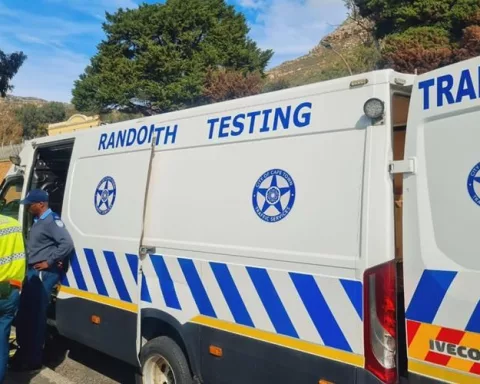A recent investigation in Cape Town uncovered over 400 instances of questionable papers being submitted for driving licence transactions, with 297 licences flagged as suspicious. Despite the measures in place to detect fraud, these deceptive practices continue to endanger the lives of road users. However, the personnel at Cape Town DLTCs are skilled in detecting falsified documents, and the fight against deception is ongoing. The DLTCs engage in meticulous verification and cross-referencing of all paperwork against the National Traffic Information System (NaTIS), and fraudulent documents are met with administrative notes and reported to the relevant authorities.
Unearthing the Web of Deceptive Licences in Cape Town: A Narrative of Deception Versus Vigilance
Discover the alarming growth in the submission of questionable papers for driving licence transactions in Cape Town. In recent years, over 400 instances of questionable papers were put forth, with 297 licences flagged as suspicious. Despite measures to detect fraud, these deceptive practices persist relentlessly, endangering the well-being of road users. However, the personnel at Cape Town DLTCs are proficiently trained to detect falsified documents, and the battle against deception is ongoing.
The Emerging Pattern of Suspicious Documentation
The intricate maze of Cape Town Driving Licence Testing Centres (DLTCs) has, in recent times, spotted an alarming growth in the submission of questionable papers for licence transactions. This disconcerting trend, which gained prominence in the span from July 2023 to June 2024, casts a spotlight on over 400 instances where questionable papers were put forth.
The task of reinstating a driving licence in Cape Town calls for the submission of a substantial amount of paperwork. Those who possess licences must present their existing licence, personal identification, and evidence of their residence. Following this, those applying for a public driving permit (PrDP) are subject to even more rigorous prerequisites. Beyond the aforementioned documents, they must also offer a valid medical certificate and secure police clearance.
Those possessing foreign driving licences are not spared this exhaustive process. They are obligated to transmute their licences, an act that requires additional valid paperwork, inclusive of identity documents, passports, and visas. Nonetheless, the stringent nature of these protocols has failed to dissuade fraudulent attempts.
The Larger Picture of Fraudulent Activities
The shocking discovery of 430 instances of questionable documentation submission, while worrisome, is not the complete picture. Another layer of anxiety unfolds. During the same period, 297 licences were flagged as suspicious, with sixteen of these later validated as fabricated, leading to their subsequent cancellation.
Such acts of trickery are not devoid of repercussions. Fifteen individuals were apprehended on fraud charges at the DLTCs in Goodwood and Gallows Hill. However, these arrests only scratch the surface of a much bigger problem. As Alderman JP Smith, Cape Town’s Mayco member for safety and security, asserts, the fallout goes well beyond the individual wrongdoers.
When drivers who are not competent secure access to the roads under false impressions, they not only place their lives in jeopardy but also endanger the well-being of other motorists. The potential consequences are far-reaching and severe.
Yet, despite the inherent risks and ramifications, the bold efforts at deception persist relentlessly. “The truly baffling aspect is that people will show up to renew fake licences or secure public driving permits using those counterfeit licences,” Smith shares his astonishment.
Measures to Thwart Fraudulent Practices
Nonetheless, the DLTCs are not helpless in the face of these deceptive practices. Contrarily, their personnel are proficiently trained to detect falsified documents. They engage in meticulous verification and cross-referencing of all paperwork against the National Traffic Information System (NaTIS).
When a document is verified as fraudulent, the individual is required to submit an affidavit detailing the origin and purpose of the document. Concurrently, an administrative note is attached to the individual’s record in NaTIS. In addition to this, the DLTC informs the Provincial Department of Mobility and the National Traffic Anti-Corruption Unit.
The On-Going Battle Against Deception
In sum, while the surge in fraudulent activities is indeed alarming, the vigilance and proactive initiatives implemented by the DLTCs lend a sense of reassurance. The battle against deception is an ongoing one, but the unwavering commitment to uphold the credibility of the licensing process and ensure the safety of road users persists undeterred.
1. What was uncovered in the investigation in Cape Town?
Over 400 instances of questionable papers were submitted for driving licence transactions, with 297 licences being flagged as suspicious.
2. What measures are in place to detect fraud in Cape Town DLTCs?
The DLTCs engage in meticulous verification and cross-referencing of all paperwork against the National Traffic Information System (NaTIS).
3. How are fraudulent documents dealt with in Cape Town DLTCs?
Fraudulent documents are met with administrative notes and reported to the relevant authorities.
4. What are the repercussions of fraudulent driving licences in Cape Town?
Drivers who are not competent secure access to the roads under false impressions, placing their lives and the well-being of other motorists in danger.
5. How do DLTCs thwart fraudulent practices?
DLTC personnel are proficiently trained to detect falsified documents and engage in meticulous verification and cross-referencing of all paperwork against the National Traffic Information System (NaTIS).
6. Is the battle against deception ongoing?
Yes, the battle against deception is ongoing, but the DLTCs are committed to upholding the credibility of the licensing process and ensuring the safety of road users.












